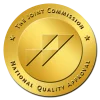Living with a mental health condition is not always easy, and for some individuals, these struggles are further compounded by substance use issues. If you struggle with both a mental health disorder and a substance use disorder simultaneously, it’s termed a dual diagnosis or co-occurring disorder.
Addressing both aspects of dual diagnosis requires a comprehensive approach that integrates specialized therapies, medical interventions, and support systems tailored to address the unique needs of each individual. By addressing the interconnected nature of mental health and substance abuse, you can embark on a path toward holistic healing and improved well-being.
Among the most common mental health conditions associated with dual diagnosis are:
Substance use disorders can involve alcohol, illicit drugs, prescription medications, or a combination of substances.
The Connection Between Mental Health Disorders and Substance Abuse
The connection between mental health disorders and substance abuse is multifaceted. Substance abuse may develop as a means of self-medicating symptoms of a mental health disorder, providing temporary relief from distress or discomfort. Prolonged substance abuse can worsen mental health symptoms or trigger the onset of psychiatric conditions in individuals predisposed to them genetically or environmentally.
Recognizing the Challenges of Dual diagnosis
Dual diagnosis presents unique challenges in diagnosis, treatment, and recovery. Symptoms of substance and mental health disorders can overlap or mask each other, making it difficult to identify and address underlying issues effectively. Additionally, individuals with dual diagnosis may face stigma, judgment, and barriers to accessing comprehensive care due to the complexity of their conditions.
Available Dual Diagnosis Treatments
Effective treatment for dual diagnosis typically involves an integrated approach that addresses both mental health and substance use disorders concurrently. Here are some common treatment options:
- Medication management. A healthcare professional may prescribe psychiatric medications to manage symptoms of mental health disorders, such as antidepressants, mood stabilizers, or antipsychotics. In addition, other medications may be recommended to support recovery from substance use disorders, such as opioid agonists or nicotine replacement therapy.
- Psychotherapy. Various forms of psychotherapy, including cognitive-behavioral therapy (CBT), dialectical behavior therapy (DBT), and trauma-focused therapy, can help you address underlying issues, develop coping skills, and modify maladaptive behaviors.
- Dual diagnosis programs. Specialized treatment programs specifically designed for those with co-occurring disorders offer comprehensive, integrated care. These programs typically incorporate a combination of individual therapy, group therapy, psychoeducation, relapse prevention planning, and peer support.
- Support groups. Participation in support groups, such as Dual Recovery Anonymous (DRA) or Alcoholics Anonymous (AA), can provide valuable peer support, encouragement, and accountability for those with a dual diagnosis. These groups provide a sense of community and support among others who share similar experiences.
- Holistic therapies. Holistic therapies, such as mindfulness meditation, yoga, acupuncture, art therapy, and equine therapy, may complement traditional treatment approaches by promoting relaxation, self-awareness, and emotional healing.
- Lifestyle modifications. Making changes to your lifestyle can support your overall well-being and enhance the effectiveness of treatment for a dual diagnosis. You can make changes such as including regular exercise in your daily routine, eating a nutritious diet, getting enough sleep, and practicing stress management techniques.
What Happens if a Dual Diagnosis is Left Untreated
When a dual diagnosis is left untreated, both conditions tend to exacerbate each other, leading to a vicious cycle of worsening symptoms and behaviors. This can significantly impair daily functioning, strain relationships, and weaken overall quality of life. The risk of self-harm, suicide, or accidental overdose may escalate. Without intervention, the person’s health deteriorates, and their ability to engage in meaningful activities or pursue personal goals is compromised.
Having a dual diagnosis can be difficult, but it can be managed through professional treatment. If you or someone you know is struggling with a dual diagnosis, seek help from qualified mental health and addiction specialists who can provide personalized support and guidance.
At Peak Behavioral Health in Santa Teresa, New Mexico, we offer services such as inpatient treatment and medical detox to help those suffering from issues that affect daily life, such as emotional, mental, behavioral, and substance use concerns. To find out more, please contact us today.







